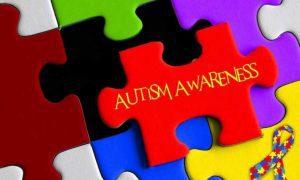
New research from the University of Kent has found that adults with autism have the ability to recognize complex emotions in others. Contrary to previous research suggesting difficulties in empathy, the study shows that individuals with autism possess strengths in processing emotions. Psychologists used eye-tracking technology to monitor participants as they read stories and gauged emotional responses. The results revealed that adults with autism were just as proficient at recognizing regret emotions and even better at computing relief emotions. The findings provide valuable insights into the emotional capabilities of individuals with autism.
In other news, scientists have made progress in the development of CAR T therapies for cancer treatment. A new technique has been developed that allows CAR T therapies to effectively target cancer cells and minimize severe side effects. This advancement could be significant in improving the effectiveness of CAR T therapies while reducing the risks associated with treatment.
Brain organoid screening has emerged as a valuable tool in identifying developmental defects in autism. This screening method involves the use of miniature brain-like structures grown from stem cells to study the effects of specific genes on brain development. By analyzing these brain organoids, researchers can gain insights into the mechanisms underlying autism and potentially develop targeted treatments.
Researchers have also made discoveries in the field of HIV treatment. It has been found that ‘dormant’ HIV, which is usually suppressed by anti-retroviral therapy, can still produce RNA and proteins. This finding provides a better understanding of how HIV persists in the body and may contribute to the development of more effective treatment strategies.
In the realm of preventive medicine, a study has compared two medications used for HIV pre-exposure prophylaxis (PrEP) and found that one of them, TAF, has a higher risk of hypertension compared to TDF. This information is crucial for healthcare providers in determining the most suitable medication for their patients.
Furthermore, a study has addressed concerns about a potential increase in cancer risk for patients with reflux disease. The findings indicate that most patients with reflux disease do not face an elevated risk of cancer, providing reassurance for individuals with this common condition.
In the midst of the ongoing COVID-19 pandemic, there have been fears that certain drugs used to treat the virus could lead to the emergence of a super virus. However, a study has shown that without key proteins, the COVID-19 virus is unable to infect people, highlighting a potential vulnerability that could be targeted in the development of antiviral therapies.
In the field of neurology, focused ultrasound is being explored as a potential treatment for Alzheimer’s and Parkinson’s diseases. This non-invasive technique shows promise in delivering targeted therapy to specific areas of the brain, offering new possibilities for patients with these neurodegenerative conditions.
Additionally, gut bacteria have been found to play a significant role in fighting colorectal cancer. The study suggests that certain bacteria in the gut may contribute to the body’s immune response against cancer cells, providing insights into potential strategies for cancer prevention and treatment.
On the topic of reproductive health, early ovary removal has been found to accelerate the aging process and increase the risk of health problems. This finding emphasizes the importance of considering the long-term consequences before undergoing such a procedure.
In the realm of infectious diseases, researchers are breeding special mosquitoes to combat dengue fever. These mosquitoes have been genetically modified to be resistant to the dengue virus, offering a potential solution to the widespread problem of dengue fever.
Lastly, certain proteins found in breast milk have been identified as essential for a baby’s healthy gut. This discovery highlights the importance of breastfeeding in providing vital nutrients and promoting the development of a strong immune system in infants.




